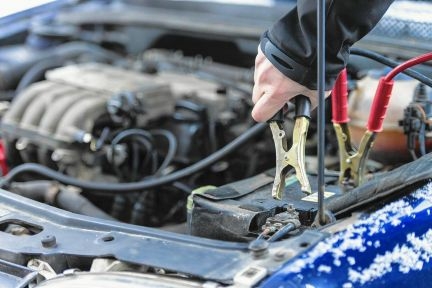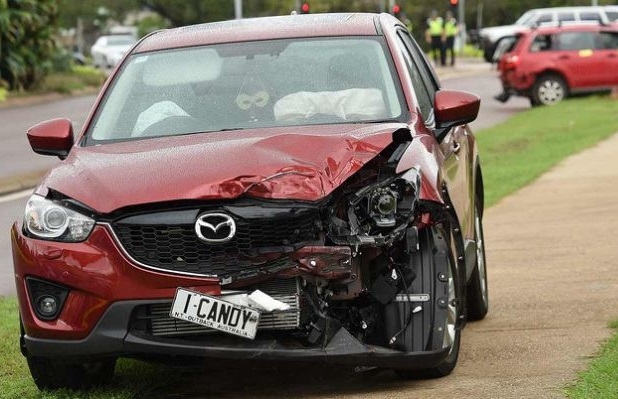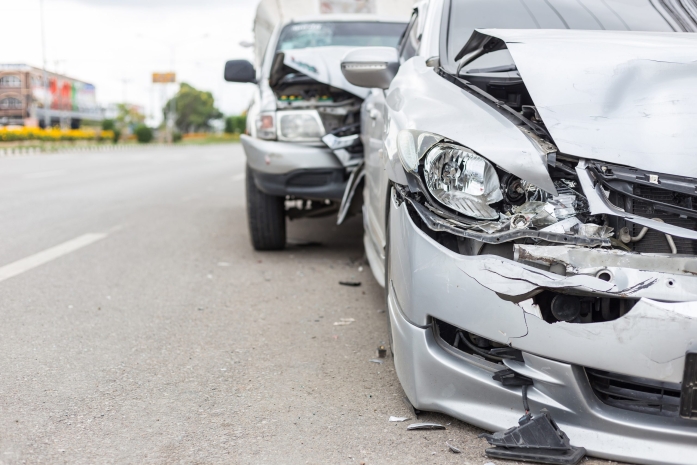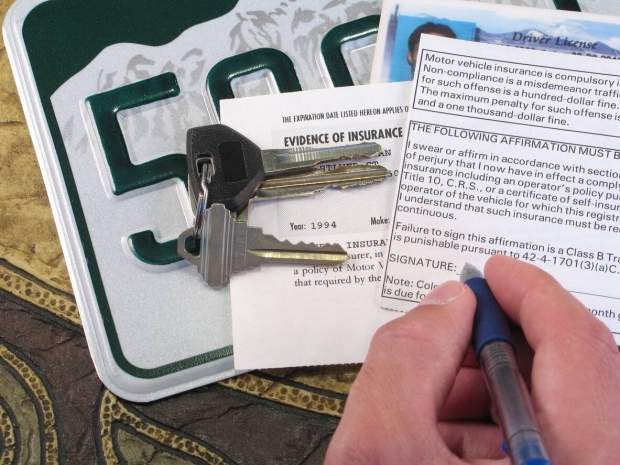Rushing into your garage late for work only to find an annoying clicking sound when trying (and ultimately failing) to start your auto? Most drivers have experienced this frustration at least once. While it might be a single-fix problem, a clicking noise when starting a car could indicate a larger issue. Learn more about different clicking noises, their meaning, ways to diagnose the problem, and more.
Rapid Clicking vs. Single Click: What Do They Mean?
The type of clicking you hear when starting a car helps determine the root cause of the problem. Is it rapid clicking or just one click that you’re dealing with? Here’s more about the chief distinctions between the two.
Rapid Clicking Sound When Starting
If your car makes rapid clicks when you turn the key or press the button, it’s typically an electrical problem to look for. The primary suspect is the defective battery. The battery can have just enough power to activate a part of the starter motor — the solenoid. Still, it might not be enough to run the engine.
If the battery is fine but the rapid clicking persists when starting the car, it could be a malfunctioning alternator that fails to charge the battery.
Single Click When Turning the Key
Is there a single-click noise when firing up the engine? In this scenario, a faulty starter is a common culprit. A starter is a little motor connected to the battery. It works as a conduit that transmits electric power from the battery to crank the engine and start combustion.
Common Reasons Why Your Car Clicks but Won't Start
Troubleshooting auto noises is a smart first step in figuring out what prevents your vehicle from functioning properly. While the reason your car won’t start but just clicks has something to do with its electrical system, the exact cause can vary.
Dead or Weak Battery
A damaged or dead battery is one of the most common reasons your vehicle generates a rapid clicking noise when you try to start it. If you think the battery is to blame, jumpstart your vehicle and head to the nearest car service to have your battery diagnosed.
Corroded or Loose Battery Terminals
Another battery-related issue involves its terminals, which might get loose or corrode over time. When the energy storage unit cables loosen their grip, it averts the proper transfer of electric current between the battery and the starter motor. If your terminals are covered with white buildup, it’s a sure sign of corrosion disrupting the connection.
Faulty Starter Motor
As highlighted above, a single clicking noise when trying to start your car might indicate a defective starter. That is, the starter motor fails to deliver electric power from the battery to ignite the engine and start combustion.
Malfunctioning Alternator
A low-performing alternator is another issue worth assuming if your vehicle produces a clicking noise. An alternator converts mechanical energy to electrical energy to charge the battery, alongside other electrical car parts. If it fails, it drains your battery, making it difficult to start your vehicle.
Faulty Ignition Switch
A malfunctioning ignition switch makes it troublesome to fire up the engine and keep it running. The problem often stems from ignition switch contacts being worn out. If this is the case, it’s quite easy to get it fixed in older vehicles. Remove the faulty switch, detach all the wiring, and install a new one.
Faulty Solenoid
When you turn the ignition key or press the start button and hear a clicking noise though the engine doesn’t crank, the likely issue is a solenoid. It’s an electromagnetic device that engages the starter motor to crank the car engine. The clicking sound means the solenoid tries to activate the starter motor but fails.
Loose or Damaged Wiring
Loose or damaged wiring can disrupt power flow between the battery, starter, or solenoid, causing clicking noises. Inspect connections for corrosion, fraying, or looseness, and test voltage to identify and repair faulty wires that disrupt the circuit.
Issues with the Electrical System
The most common electrical problems that cause a clicking sound when starting a car are related to faulty batteries, alternators, starter motors, ignition switches, and damaged wiring.
How to Diagnose the Problem
Take a top-down approach to determine why your car won’t start and just clicks. Consider the following steps to exclude the most probable causes first and narrow your troubleshooting to less frequent issues:
- Check the battery. Before anything else, assess your battery’s health. Ask a neighbor or a friend to jumpstart your auto and head to the nearest car service to check your battery.
- Inspect battery connections. Examine your battery terminals. If the clamps are loose, tighten them up carefully. If there’s a powdery residue on the terminals, clean it off to eliminate signs of corrosion.
- Test the starter motor. If you suspect the starter motor prevents your older vehicle from starting, try tapping it lightly to loosen it up. That way, you might get the electronic components to get back in contact with each other.
- Assess the alternator. Try to start your auto and look at whether the car’s check engine or battery indicator light switches on. If it does, the battery might be insufficiently replenishing, which indicates a potential issue with the alternator.
- Examine the ignition switch. Closely examine the connections in the wired cables linked to the ignition switch. To be more precise, use the multimeter to check if the electric connection is uninterrupted.
- Inspect the solenoid. The solenoid could be the issue if the battery is fully charged but the car still won’t start but clicks. Check whether all the electrical connections are tight and not corroded. Worn contacts and corrosion might cause the solenoid to fail to function properly.
- Check wiring and electrical connections. Inspect all the wired connections for any visible signs of wear and tear. Contact a reliable car repair service provider to run a deep check-up of your vehicle’s electrical system.
What if the Lights and Radio Work but the Car Won't Start?
Many drivers assume that if their car won’t start but the lights and radio work — the problem is anything but the battery. Well, not always. It takes more power to fire up the engine than to keep lights and radio running. Your energy storage unit could be depleted, causing the engine to fail to start.
With a faulty ignition switch, electricity never reaches the starter motor even if the battery’s performance is flawless. As the lights and radio rely on the energy storage unit, your auto might not start with a malfunctioning ignition switch while other electronic parts work properly.
Car Won't Start and No Clicking Noise: Other Possible Issues
Other plausible scenarios for why your car won’t start and no clicking is heard are issues with the starter relay or the automatic shutdown relay (ASD).
The former is the electrical device that acts as a switch that allows power to flow from the battery to the starter motor when engaged. The ASD relay, typically found across several US car makes, charges the ignition coils and alternators. In both cases, these auto components need to be replaced to fix the issue.
Safety Precautions When Diagnosing Car Electrical Issues
When troubleshooting your car’s faulty performance, make safety your priority. Remember that hybrid vehicles have high-voltage batteries. Hence, handling the ignition system can be dangerous due to the voltage exposure. Always ensure one of the cables is disconnected from the battery to break the electric circuit.
Preventive Measures to Avoid Engine Starting Problems
Timely maintenance services and good care are non-negotiable to prevent issues with your car’s engine. Any minor problem addressed promptly could save money and time and win your vehicle some extra years of smooth riding.
Frequently Asked Questions
My car won't start, it just clicks but the battery is good. What could be the problem?
If your car won’t start, it simply clicks, and nothing seems wrong with the battery, test the following for malfunctioning: starter motor, ignition switch, and solenoid.
How do I know if my starter motor is faulty?
A single-clicking noise when starting your car hints at a faulty starter motor. Especially if it is combined with intermittent starting issues, grinding noises, or no response from the engine.
Can a bad alternator cause a clicking noise when starting?
Yes, a malfunctioning alternator can cause a clicking noise when starting your vehicle by draining the battery and providing insufficient power to the starter motor.
Why does my car click when trying to start in cold weather?
Low temperatures can deteriorate the battery’s ability to hold a charge. Plus, oil solidified under the freezing temperatures makes it more difficult for the engine to start.
How often should I replace my car battery?
It’s recommended to have the battery replaced every three to five years. However, the lifespan of your energy storage unit varies based on its quality, weather conditions, and peculiarities of utilization.
What should I do if I still hear my car making a clicking noise after replacing the battery?
If you still hear a clicking noise after replacing the battery, clean and tighten the terminals to ensure a solid connection. If the issue persists, check the starter motor, solenoid, and electrical wiring for faults.





